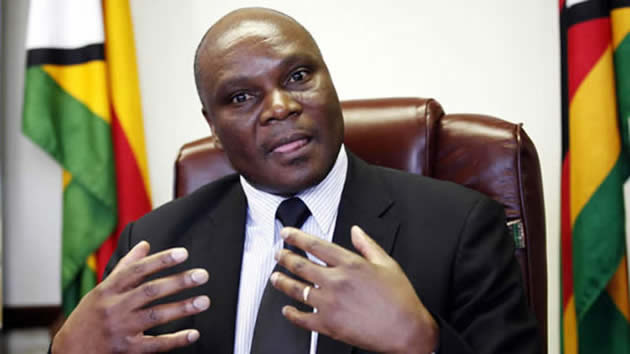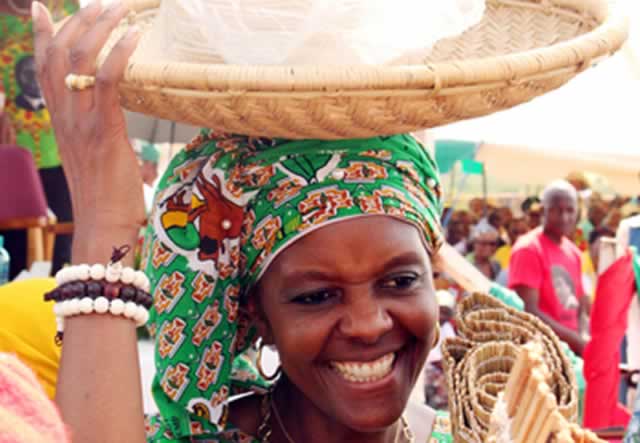Local diamond sales low

Lloyd Gumbo Senior Reporter
Zimbabwe did not benefit much from the diamond sales on the local tender last week, as the gems went for a song after international buyers bought them at half the international price, raising questions on how the local sales are being handled.
Diamond dealers believe there was connivance by buyers to undervalue the precious gems knowing that Zimbabwe was desperate to sell, but could not participate at the international market because of threats of confiscation by companies in hostile countries.
Ironically, local diamond dealers have been clamouring for domestic sales, arguing that the country stood to benefit more than incurring additional costs for shipping the gems out of the country.
Marange Resources, a wholly State-owned company, sold 75 000 carats at last week’s auction and realised about $5,2 million, while Diamond Mining Company traded about 46 000 carats and raised about $2,8 million.
Marange Resources acting chief executive officer Mr Mark Mabhudhu yesterday confirmed that the prices from the local sales were low.
“Technically, the inaugural tender went well because it was under conditions similar to the international one with a facilitator, so we expected a good result,” he said.
“At the recent international auction, we have been selling at an average of $143 per carat, but that came down to $70 per carat at our local tender last week.
“The problem is they (the buyers) knew our goods were sequestrated and that we are desperate to sell. It’s not a good environment to operate under such circumstances.”
Mr Mabhudhu said 25 valuators from 12 “big diamond companies” predominantly from India attended the auction that also had representatives from Zimbabwe, Namibia and South Africa.
He said the way forward was for Zimbabwe to address challenges on the international market.
“We need engagement at country level to address these challenges, for instance at Antwerp, because if we don’t engage at the top and continue to sell locally without a leeway to sell at the international market without challenges then our prices will continue to be affected,” said Mr Mabhudhu.
“We need freedom to sell our products without restraint. At the moment, the cost of producing one carat is $44, so the country can only benefit if we can sell at the international average price of about $143. Selling at home is a brilliant idea, but we should not be squeezed.”
Mr Mabhudhu said Botswana and South Africa were selling diamonds at an average price of $150 and $130 per carat respectively.
A diamond dealer who requested anonymity added; “The diamond industry is so networked to the extent that these companies know each other very well, so there are high chances that they connived to undervalue our diamonds so that they can get them for a song.
“We will have to deal with it as long as we sell locally without addressing our international problems.”
But DMC general manager Mr Ramsey Malik said their gems were bought at an average price of $60 per carat compared to international market price for their diamonds that was about $45.
“Normally, I can’t say wow and I can’t say (it was) bad,” he said. “Like I said, nothing to cry about or cheer about. Just normal.
“If we were to sell abroad it would have been the same. Better stay home. Let’s give it time. It’s the first sale. We will be okay, God-willing.”
Belgian authorities last month seized Zimbabwean gems worth about $45 million after an order allowed Amari Platinum to seize them over a failed platinum mining venture.
A group of 12 white commercial farmers then approached the European Court to seize the diamonds soon after an order allowing Amari Platinum to seize them had been reversed.
Despite the setback, Mr Mabhudhu said the future for Zimbabwe’s diamond industry looked promising given the Ministry of Mines and Mining Development’s direction.
“The Minister (Walter Chidhakwa) is doing a lot to help us, especially on the fact that he has insisted on transparency, which is good for our country,” he said.
“This is an industry that can turn around the country if we manage it properly. The direction that the Minister is taking to consolidate mining companies is very good.”
Minister Chidhakwa said yesterday that he was yet to be briefed on the figures and referred all questions to permanent secretary Professor Francis Gudyanga who was not reachable.
“I would need to see the prices first,” he said.
“I was busy the whole day, I have presentations to do to Cabinet tomorrow, but I think secretary (Prof Gudyanga) knows the prices.”








Comments